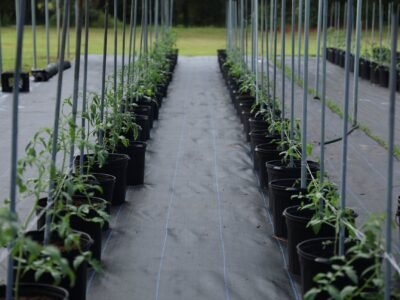Introduction
Gardening has long been known for its physical benefits, but did you know that it can also have a positive impact on your mental health? The act of tending to plants and being surrounded by nature has a soothing effect on the mind and can help improve your overall well-being. In this blog post, we will explore the healing power of plants and how gardening can be a therapeutic activity for your mental health.
Connection with Nature
One of the key reasons why gardening is beneficial for mental health is the connection it provides with nature. In today’s fast-paced and technology-driven world, we often find ourselves disconnected from the natural world. Gardening allows us to reconnect with nature and experience its calming influence.
Being outdoors, feeling the sun on your skin, and breathing in the fresh air can help reduce stress and anxiety. Studies have shown that spending time in nature can lower cortisol levels, the hormone associated with stress. Gardening provides an opportunity to escape the pressures of daily life and find solace in the beauty of the natural world.
Sense of Achievement
Gardening is a rewarding activity that offers a sense of achievement. Watching a seed grow into a beautiful plant or harvesting your own fruits and vegetables can boost self-esteem and provide a sense of accomplishment. This feeling of achievement can be particularly beneficial for individuals struggling with mental health issues, as it helps to build confidence and a positive mindset.
Furthermore, gardening teaches us patience and resilience. It is a process that requires time, effort, and nurturing. As we care for our plants, we learn to be patient and trust in the natural cycle of growth. This can translate into our personal lives, helping us develop resilience and the ability to navigate through challenging situations.
Mindfulness and Stress Reduction
Gardening is a form of mindfulness practice that encourages us to be present in the moment. As we engage in activities like planting, weeding, or watering, we become fully immersed in the task at hand. This focus on the present helps to quiet the mind and reduce stress.
Studies have shown that gardening can have a similar effect on the brain as meditation. It promotes relaxation and can even increase serotonin levels, which are responsible for regulating mood and promoting feelings of happiness. The repetitive nature of gardening tasks, such as raking or pruning, can induce a state of calm and tranquility.
Social Connection
Gardening can also be a social activity that fosters connection with others. Joining a gardening club or participating in community gardening projects allows you to meet like-minded individuals and form new friendships. Social interaction is an important aspect of maintaining good mental health, as it provides support and a sense of belonging.
Working together in a garden can create a sense of community and shared purpose. It provides an opportunity to learn from others, share knowledge and experiences, and collaborate on common goals. These social connections can be particularly valuable for individuals who may feel isolated or lonely.
Conclusion
Gardening is not just about growing plants; it is a therapeutic activity that can have a profound impact on your mental health. By connecting with nature, experiencing a sense of achievement, practicing mindfulness, and fostering social connections, gardening can help improve your overall well-being. So, grab a shovel, get your hands dirty, and experience the healing power of plants for yourself.















